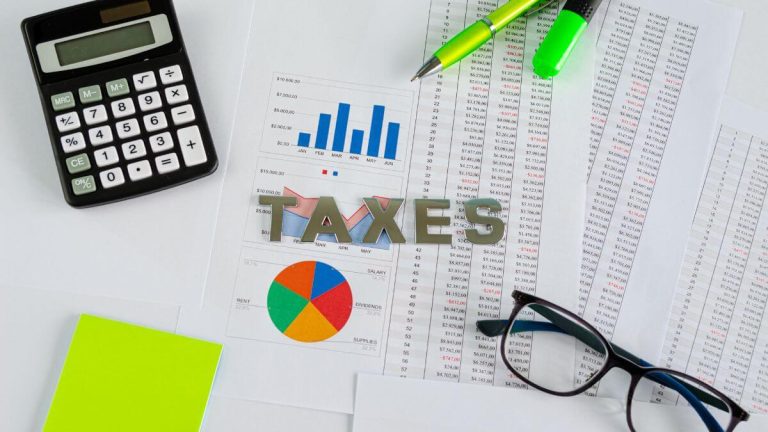South Africa’s tax authority, the South African Revenue Service (SARS), has issued a clear warning to social media influencers: all income must be declared, regardless of whether it is received in cash, products, services, or travel. This move comes as part of SARS’ ongoing efforts to strengthen compliance across the digital economy, where unpaid taxes have become a growing concern.
Thank you for reading this post, don't forget to subscribe!Why Social Media Influencers Are in SARS’ Crosshairs
The rise of the digital economy has seen traditional marketing channels lose ground to individual content creators who command large followings on platforms such as Instagram, TikTok, YouTube, and Facebook. Brands increasingly collaborate with influencers for sponsored content, product endorsements, and affiliate marketing.
However, many influencers may be unaware that non-monetary perks, such as free travel, meals, or gifts, are considered taxable income under South African law. SARS has now added social media influencers to its taxpayer segmentation model, alongside the gig economy and government entities, signalling a serious focus on this sector.
The Scale of the Challenge
According to the South African Institute of Taxation, SARS is targeting more than R500 billion in unpaid taxes across the economy, identifying online content creators as one of the key areas where compliance has lagged. Commissioner Edward Kieswetter has emphasized that SARS aims to assist honest taxpayers in meeting their obligations while ensuring that tax compliance is maintained.
“No matter how social influencers are remunerated, all of these are deemed as income and must be taxed accordingly,” Kieswetter explained. SARS is keen on voluntary compliance but has warned that penalties will be applied in cases where income is concealed.
What Counts as Taxable Income for Influencers?
Influencers earn income in diverse forms, and SARS has clarified that all forms are taxable. Here’s what needs to be declared:
- Cash Payments: Direct payment for sponsored posts, endorsements, or collaborations.
- Products: Gifts or merchandise received in exchange for promotion.
- Services: Free services, such as professional photography, video editing, or personal styling.
- Travel & Accommodation: Sponsored trips, flights, or hotel stays provided by brands.
Many influencers may overlook these non-monetary benefits, yet SARS considers them part of total taxable income. This approach aligns with the broader principle that any economic benefit derived from your work must be reported for tax purposes.
SARS’ Support for Influencers
While the focus on compliance may seem daunting, SARS has committed to providing support to influencers. Educational campaigns, including videos, webinars, and seminars, are being rolled out to help social media content creators understand their tax responsibilities. These resources aim to clarify what constitutes taxable income, how to register as a taxpayer, and the proper way to declare earnings.
SARS’ approach is intended to be collaborative rather than punitive, offering a “seamless taxpayer experience” for influencers who seek guidance on compliance. The emphasis is on transparency, record-keeping, and voluntary adherence to tax laws.
How Influencers Can Ensure Compliance
For influencers looking to stay on the right side of SARS, here are some practical steps:
- Register as a Taxpayer: Even if your income is irregular or modest, registration is essential. This is your first step toward proper compliance.
- Keep Detailed Records: Track all forms of income, including non-cash perks, sponsorships, and affiliate revenue.
- Understand Deductible Expenses: Certain business-related costs may be deductible, including internet expenses, equipment, or marketing costs.
- Declare Income Promptly: Avoid delays in reporting income, as late or inaccurate submissions can attract penalties.
- Seek Professional Advice: Consulting with a tax professional familiar with the digital economy can help ensure accurate reporting and maximise allowable deductions.
The Digital Economy and Tax Compliance
The crackdown on influencers is part of a broader push to regulate the digital economy. With more brands allocating budgets to social media marketing and online content creation, SARS is adapting to ensure that all revenue streams are appropriately taxed. Voluntary compliance remains a priority, but the message is clear: undeclared income will not go unnoticed.
As the digital economy continues to grow, influencers play an increasingly significant role in marketing and advertising. Being informed, organised, and proactive about tax responsibilities not only ensures compliance but also builds trust and credibility with both SARS and your brand partners.
Also check: No New Parcel Tax in South Africa: Understanding VAT and Customs Duties in 2025
SARS’ recent announcement is a reminder that in South Africa, all forms of income – whether cash, products, services, or travel – must be declared by social media influencers. By understanding what counts as taxable income and making use of the support resources available, influencers can meet their obligations without stress.
The digital economy offers incredible opportunities, but it also comes with responsibilities. Compliance with tax regulations safeguards your reputation, allows you to grow sustainably, and ensures that you contribute fairly to the country’s economy. Staying informed and proactive is the best way for influencers to thrive in this evolving landscape.




